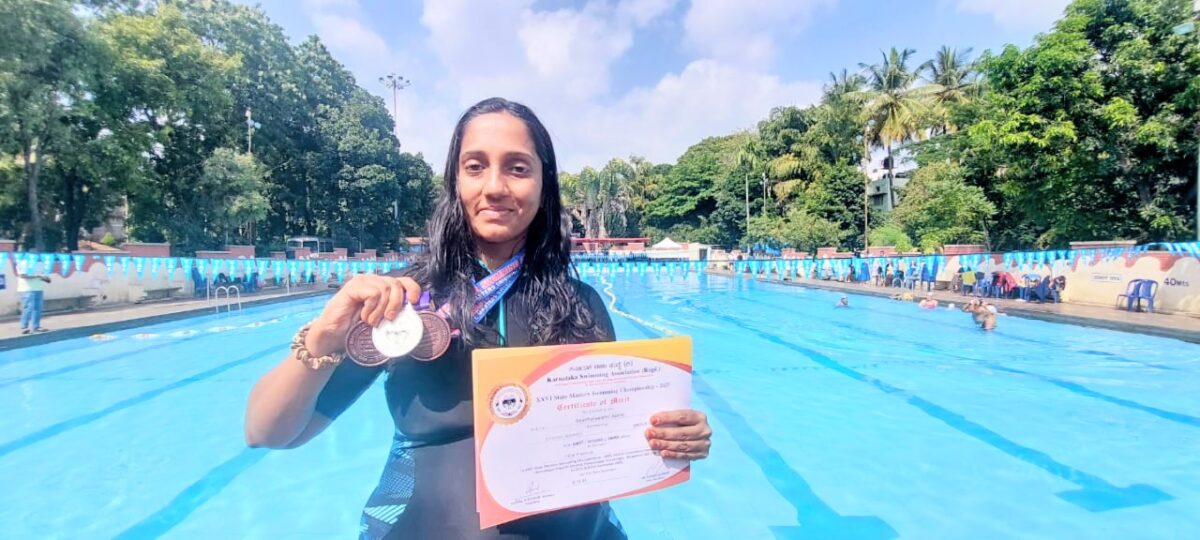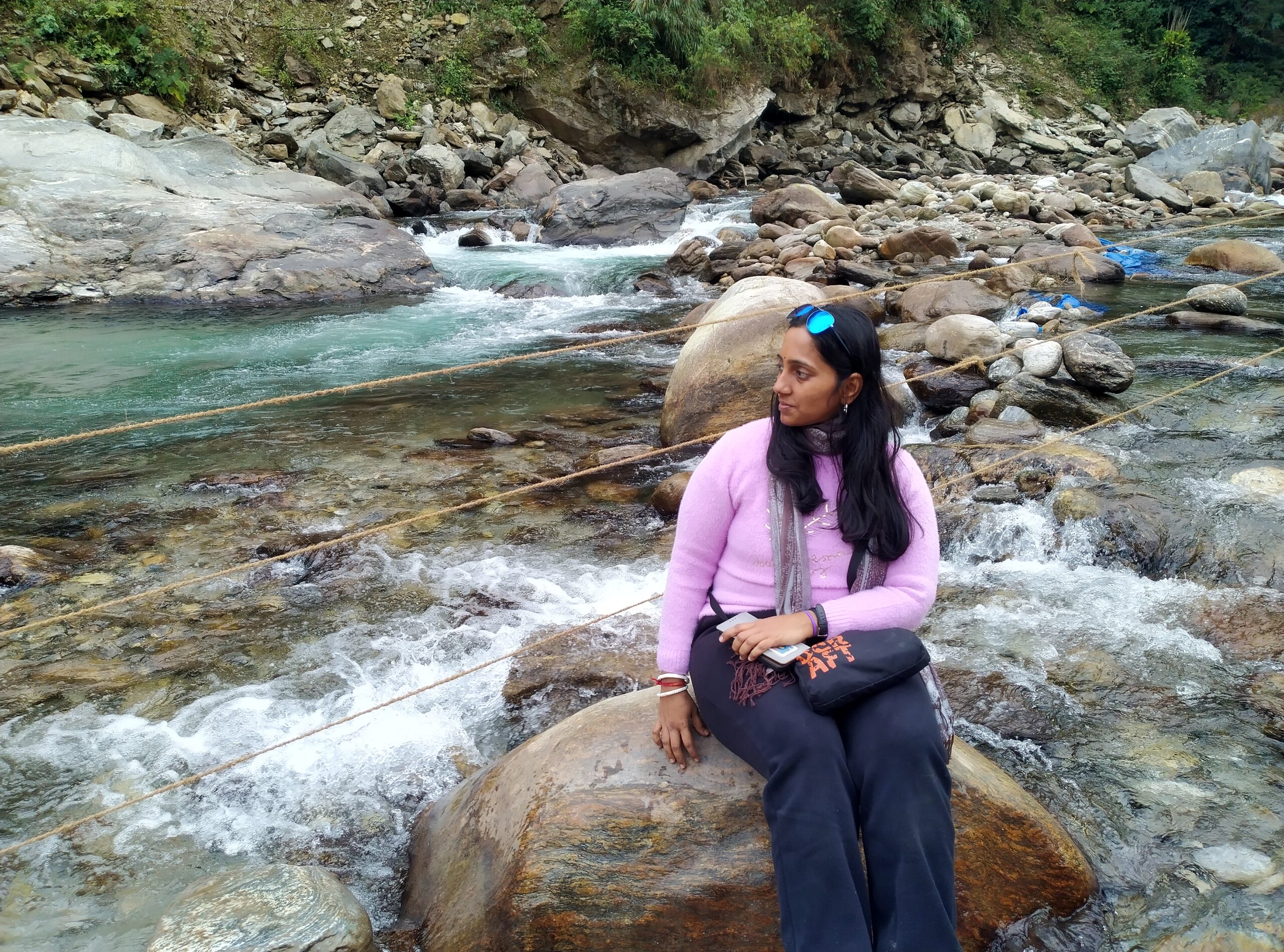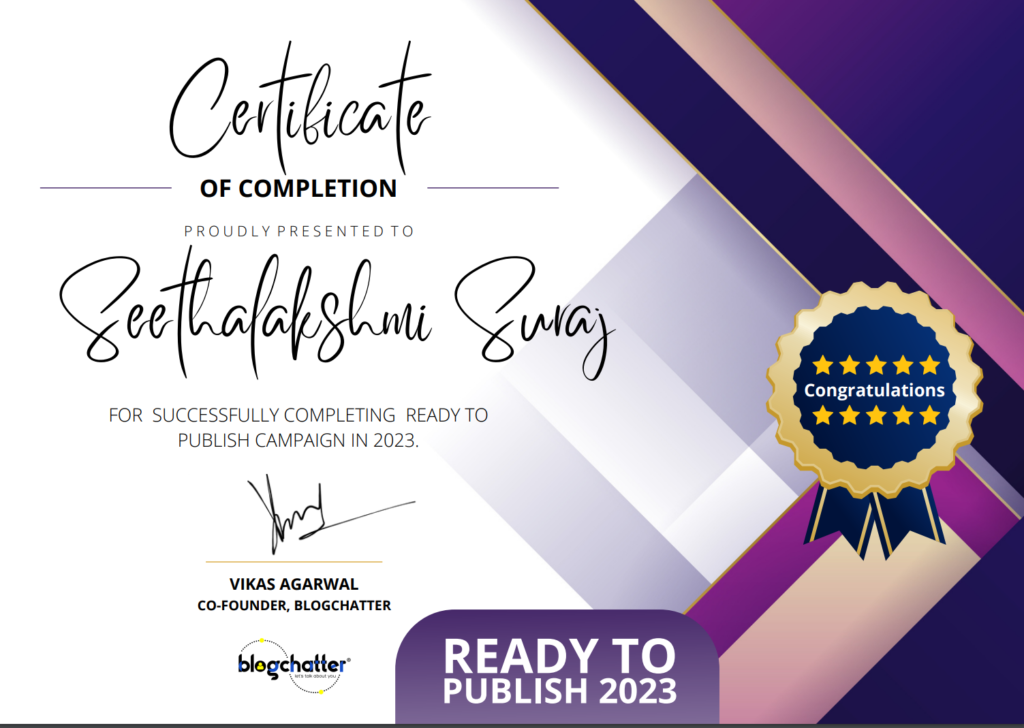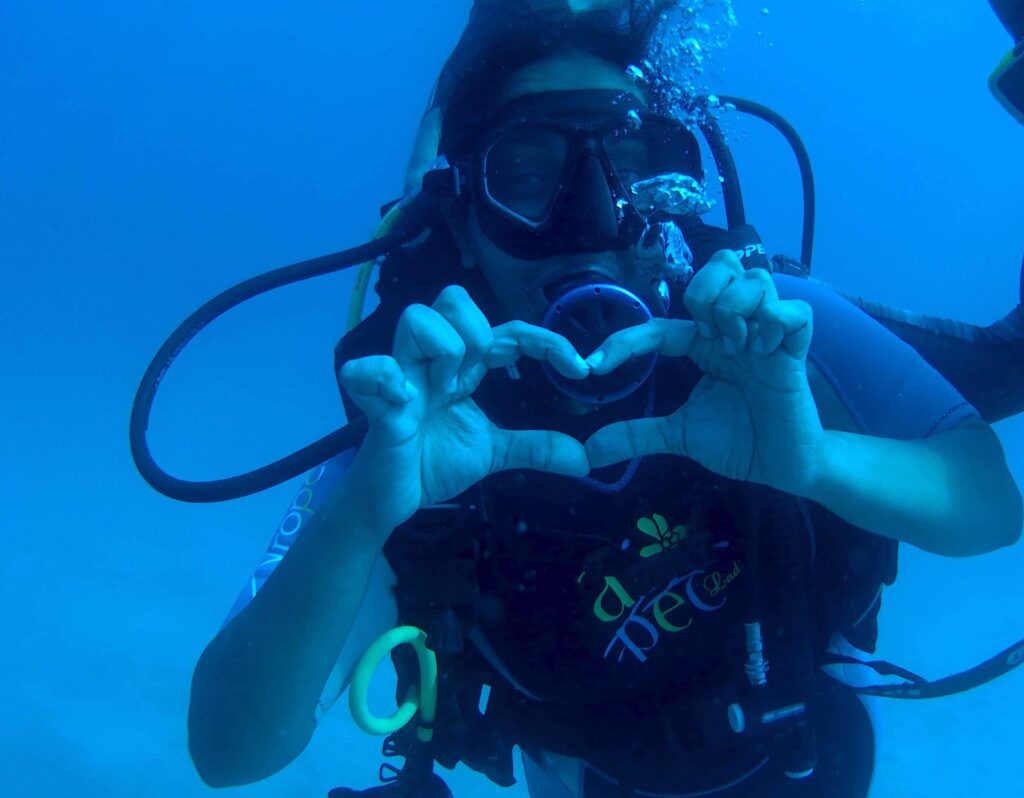
Once you are a swimmer, the water never really leaves you — it waits for your return.
After I got back from the state swim meet with medals, one of my fellow swimmers at the club quipped with amazement,
“Seetha ma’am is someone who rarely comes for regular practice sessions, yet wins!”
And that, in a way, sums up this post. This is what swimming with ITP—an autoimmune condition—really looks like. Rest and recovery top actual practice.
Disclaimer: I wouldn’t say regular practice with an autoimmune condition is not at all feasible, but it’s a matter of priority and energy.
For someone like me, managing home chores, raising a teen daughter, freelancing as a writer, and now upskilling with a demanding (yet fulfilling) publishing course, regular pool sessions often slip down the list. And when Bengaluru’s weather decides to play tricks, even a small temperature drop can nudge my immunity into rebellion, forcing me to rest for a week.
The result? My water feel goes off, endurance dips, timings slow down and I find myself restarting again and again.
But once you’re a swimmer, always a swimmer.
There’s no real looking back—only returning.
When the Game Has to Change
Sprints were never my thing. They demand consistency, speed, and sharp bursts of energy, something my body can’t always promise. So I turned to long-distance events, the kind that test patience as much as stamina.
This time, I tried something new, the 200m Individual Medley—four strokes, fifty meters each. It was intimidating, yet thrilling. Every lap felt like crossing a small fear.
Interestingly, most of my training happened outside the pool.
I watched videos, visualised strokes, and practised patience, giving equal importance to rest and recovery.
A month before the meet, I had my biggest blessing: my parents’ presence.
Mom’s warm, homemade meals and my dad’s delightful company for my daughter meant I could finally rest without guilt. The invisible load lightened. My body began to heal, and my mind began to focus.
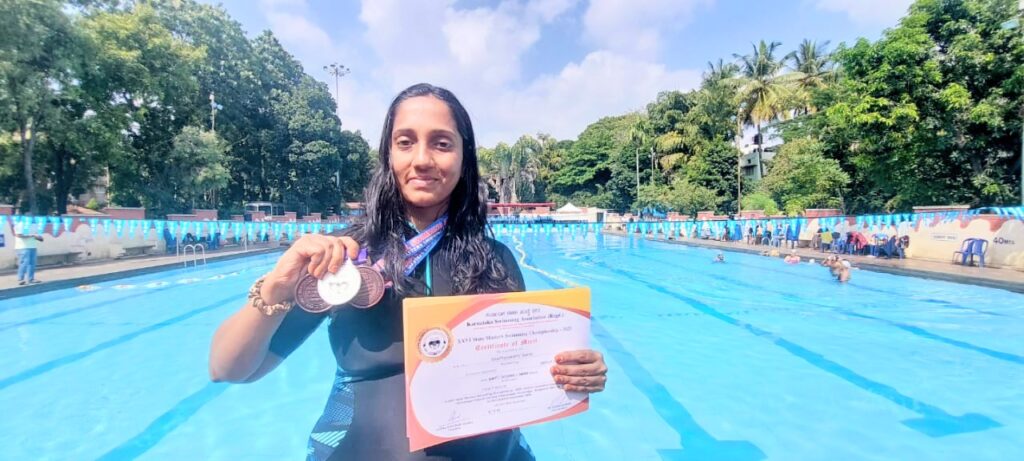
The Quiet Weight of Fatigue
Even when my platelet count looks “fine” — say around 60,000 — fatigue remains my quiet companion. That’s because, with ITP, the fight never really stops. The immune system keeps attacking platelets, releasing inflammatory chemicals that drain energy without warning.
It’s a kind of exhaustion that seeps into the bones not just physical, but emotional.
It’s waking up already tired. It’s feeling the body lag behind the mind’s enthusiasm.
Sometimes, it feels like working at half the pace of others.
But I’ve learned to see it differently — not as “less efficient,” but differently efficient. My body may move slower, but my awareness runs deeper. I plan better, pace better, and learn when to rest without guilt.
This invisible negotiation between energy and willpower is what shapes my swim story.
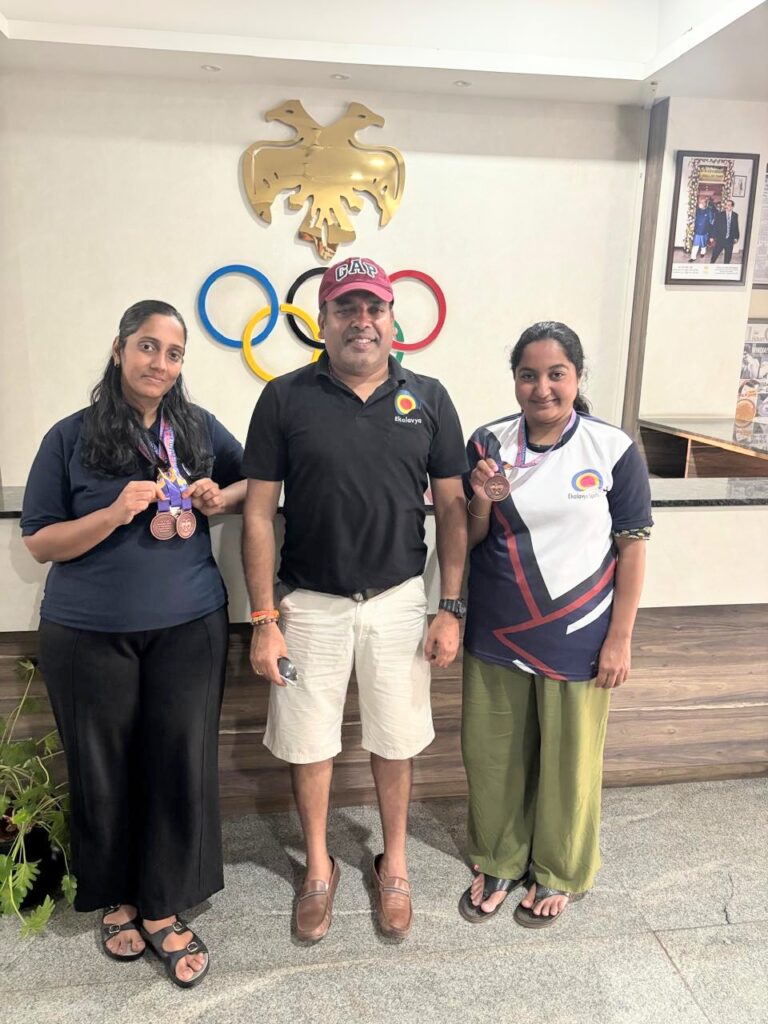
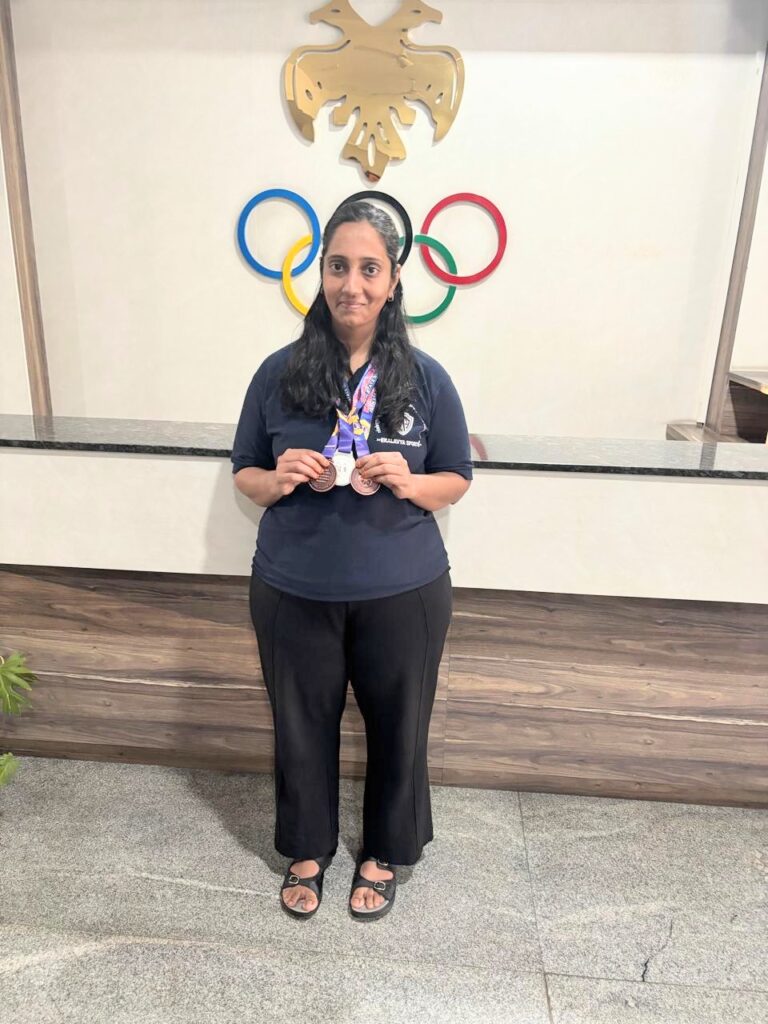
What Swimming with ITP Looks and Feels Like
It doesn’t look like the lane next to me.
There’s no fierce splash or finish-time obsession.
It looks like measured breaths, mindful strokes, and a quiet deal between body and water — “I’ll listen if you let me move.”
Some days, I glide as if I was made for it, weightless, free, every cell remembering what joy feels like. Other days, the pool feels like a mirror, reflecting the bruises, the fatigue, the uncertainty of platelets that refuse to stay.
It feels like faith.
Because with ITP, every dive is a decision to trust my body despite its rebellion, to let the water hold me when I feel too fragile to hold myself.
When my limbs ache or my energy dips, I remind myself I’m not here to race. I’m here to flow.
Swimming is my rebellion against stillness, my meditation in motion.
The chlorinated blue becomes my therapy room where the noise of hospital corridors dissolves into rhythm, breath, and grace.
It feels like resilience wrapped in a swimsuit; a quiet victory that no medal can measure.
I’ve always swum to break my mental barriers, to stay as physically active as my body allows, and to savour the sacred feel of water — like my coach often reminds me in Kannada, “Neevu, Neeru, Devaru” — just me, water, and God. More than chasing medals or clocking timings, it’s about finding myself, one lap at a time.
Suggested Read:
This post is part of the Blogchatter Half Marathon.

